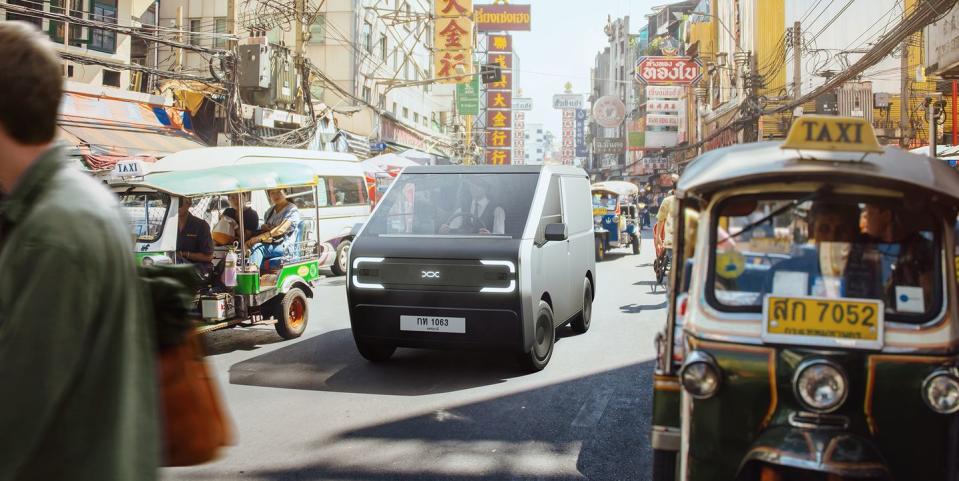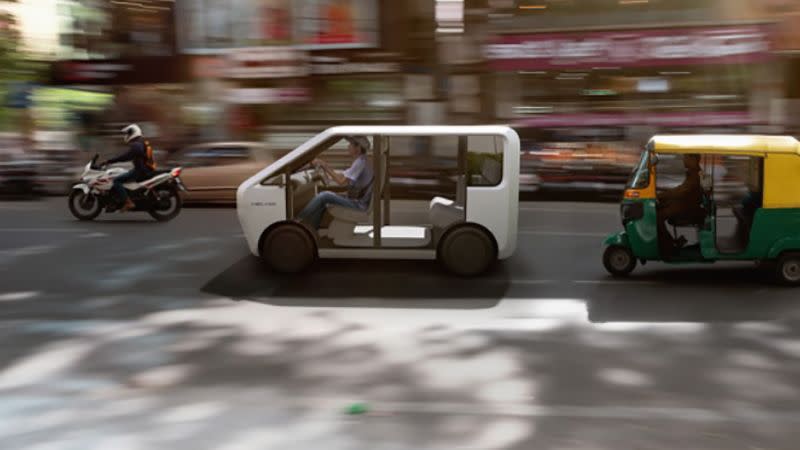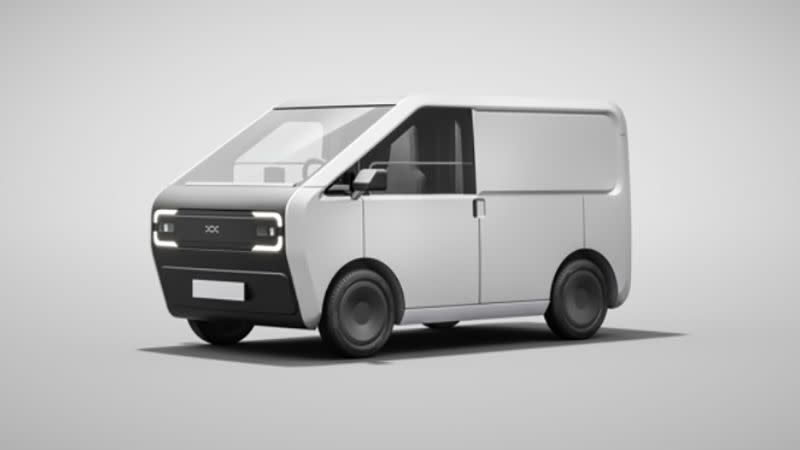This Startup Wants to Build Small Commercial EVs

UK-based Helixx plans range of four inexpensive commercial EVs on a common platform, aimed at small businesses and ride-hailing operators.
The startup plans to offer manufacturing facilities for its EVs as well, aimed at developing countries.
Helixx envisions local manufacturing of its four affordable EV models, all based on a single platform.
While it's easy to get the impression that EVs are suddenly everywhere, this largely holds true for just a handful of countries in western Europe in addition to China, South Korea, Australia, Canada, and a few US states. The EV revolution is largely passing by countries of the global south, not to mention central Asia and eastern Europe, as electric cars remain a luxury item in most parts of the world.
A new startup aims to change this status quo not only with a range of affordable commercial EVs, but also the factories to produce them. UK-based Helixx has designed a range of four affordable mini commercial electric vehicles with a shared platform and components, aimed at densely populated developing cities.
Designed by Jakub Jodlowski and Jodyn Wong, the EV range is composed of models called simply CARGO, TRUK, RIDE, and TUK, with the first two aimed at last-mile delivery and construction businesses, respectively, while the latter duo is aimed at ride-hailing operators offering closed and open cabins.

The EVs themselves will rely on swappable lithium iron phosphate (LFP) batteries, allowing them to be used 24 hours a day if needed. Each EV would feature up to six battery packs, offering 2 kWh each, giving each a top range of 124 miles. But pricing information remains unannounced for the moment.
"For the past four years, we have researched the market to ensure the creation of sustainable zero-emission vehicles that meet the demands and needs of the world’s developing economies," said Steve Pegg, Helixx CEO and co-founder. "But arguably more importantly, we tasked ourselves to find a solution to how such vehicles could be deployed wherever they are needed in the world with maximum speed and energy efficiency and minimum cost and complexity."
In a way, Helixx is picking up where Arrival left off when it comes to the mix of EVs. But its target pricing is in a different category altogether. Before it significantly reduced its lineup, Arrival also planned a range of commercial EVs, as different in size as a large passenger bus to an EV meant just for ride-hailing drivers, in addition to delivery vans of two sizes.
Helixx has adopted a similar recipe albeit with a single, shared platform and bodystyles adapted to particular uses. The TUK ride-hailing model, for instance, does not offer doors and is aimed at extra-urban areas in warm climates, while the RIDE model features doors. The minimalist approach extends to the exterior design, which should remind our readers of yet another Arrival model.
The similarities don't end there.
The startup's plans extend to manufacturing as well, with a microfactory-style approach open to localized manufacturing. The company plans to install equipment and train staff, in addition to sourcing raw materials and parts for EV production, in what it calls an Industry 5.0 digital platform that prizes supply-chain flexibility and local sourcing of components.

Helixx plans to built a test production hub in the UK with help from Siemens, prior to launching more pilot hubs in the UK as well as in Singapore.
The startup's aim is to allow regional businesses to manufacture and operate fleets of commercial EVs based on its adaptable design for a range of uses, all operating within what Helixx calls a circular manufacturing ecosystem.
"Helixx was born to meet the challenge of transforming the quality and standard of mobility for citizens in heavily congested cities," Pegg adds. "The vehicles offered by Helixx are the key to replacing the heavily polluting combustion-powered vehicles relied upon in developing nations today."
Is this EV manufacturing model suitable for producing EVs, or are larger, traditional car manufacturers better able to produce large numbers of inexpensive electric models? Let us know in the comments below.

 Yahoo Autos
Yahoo Autos 